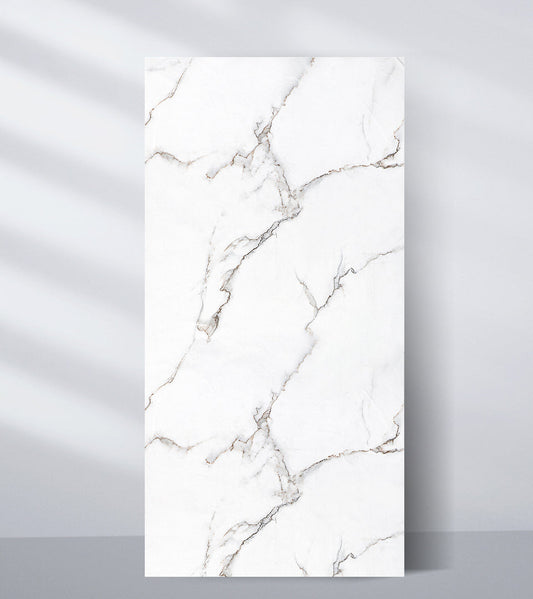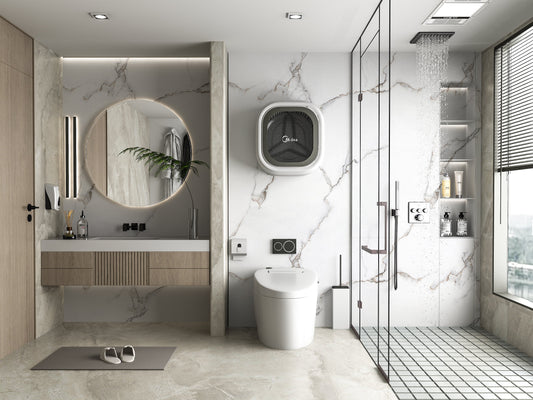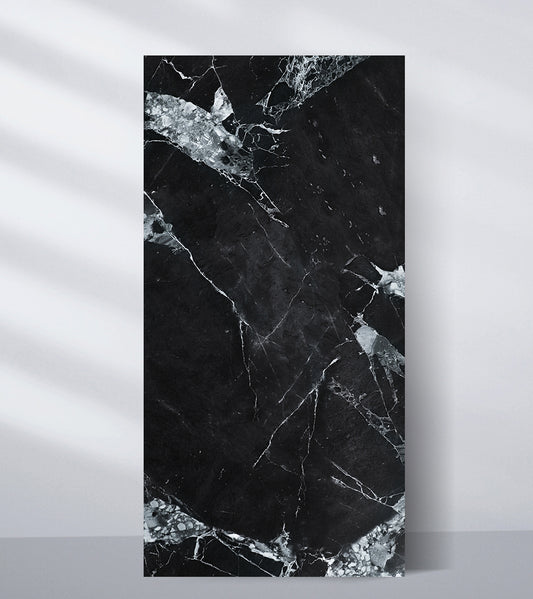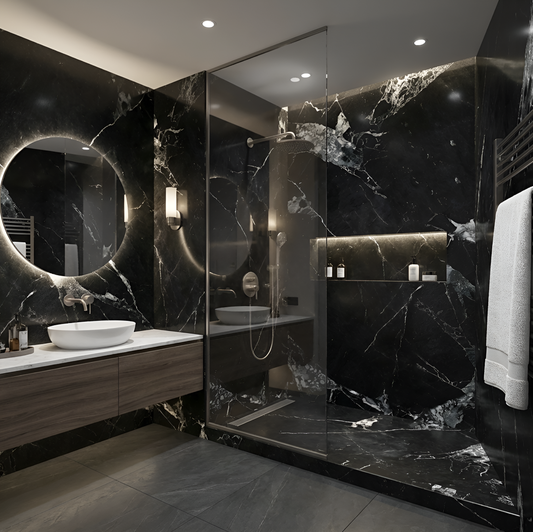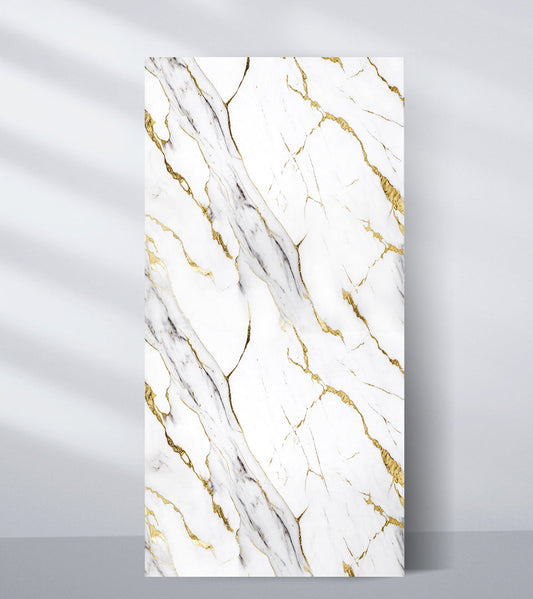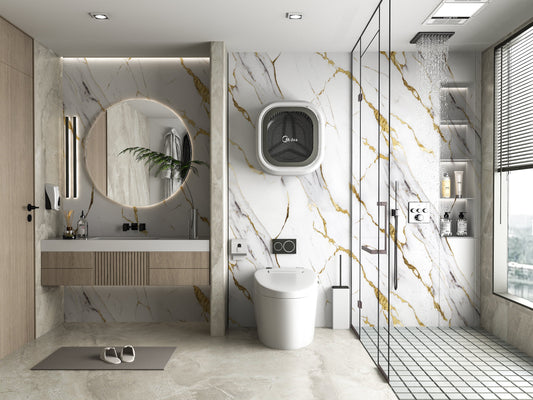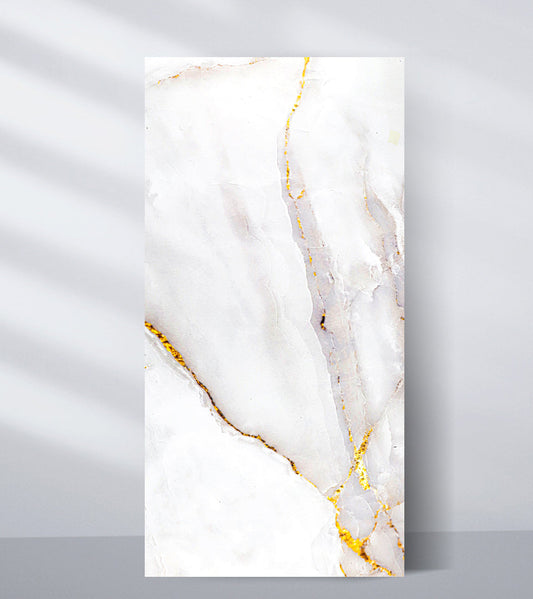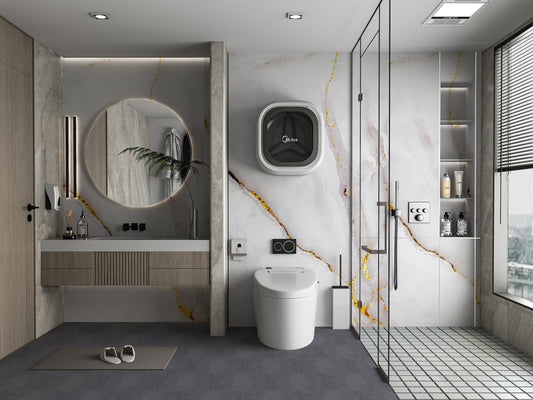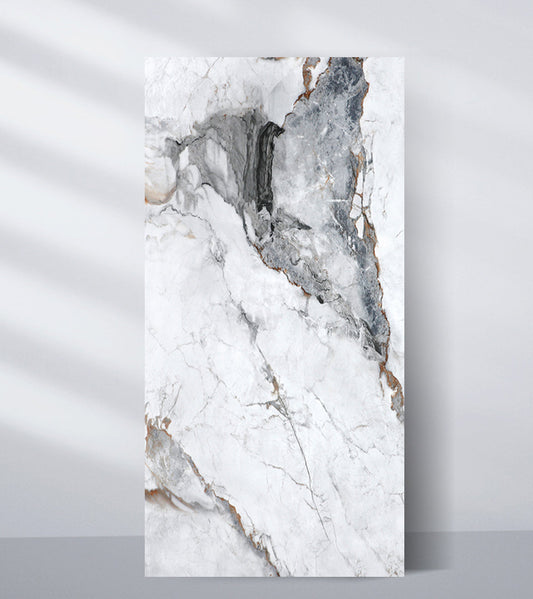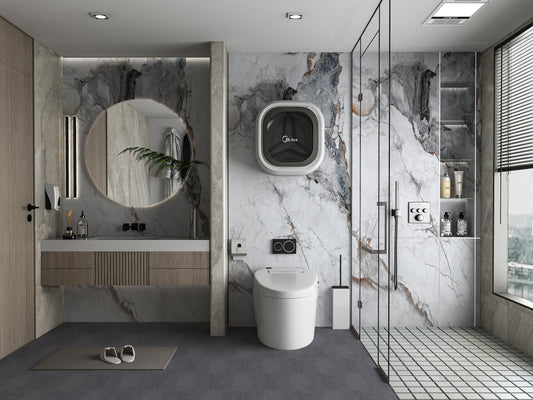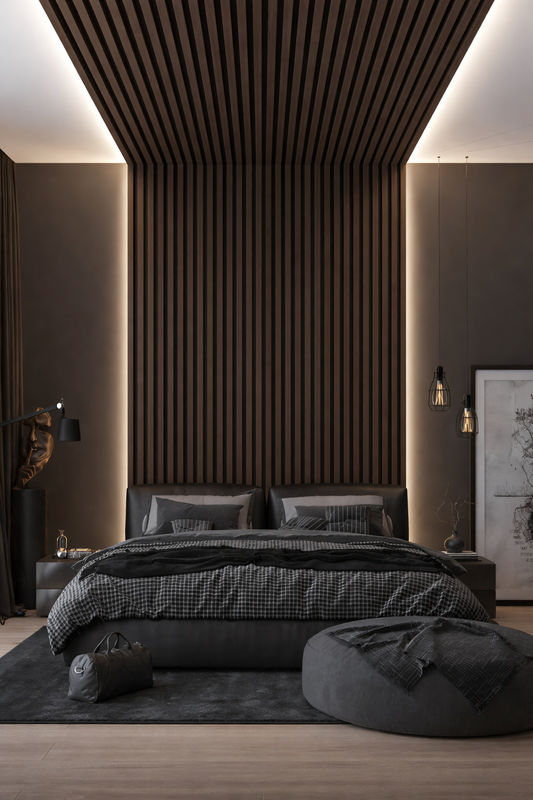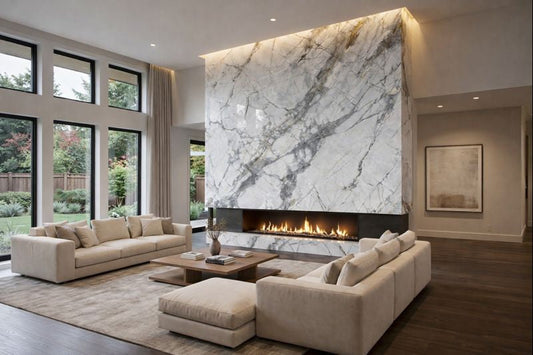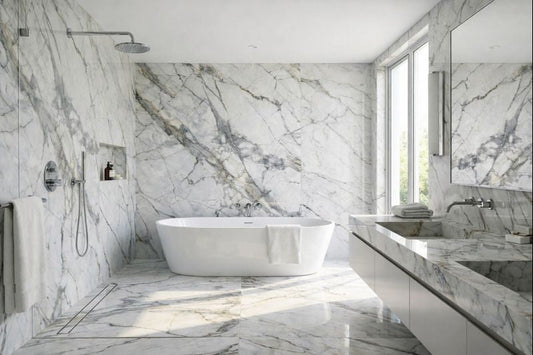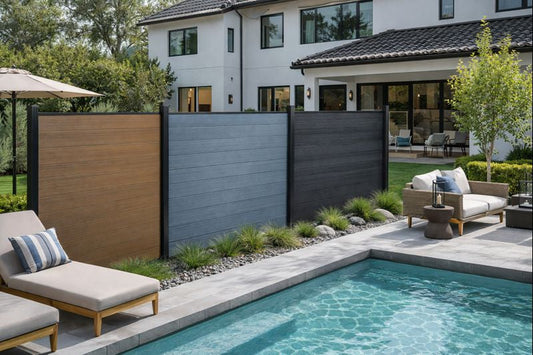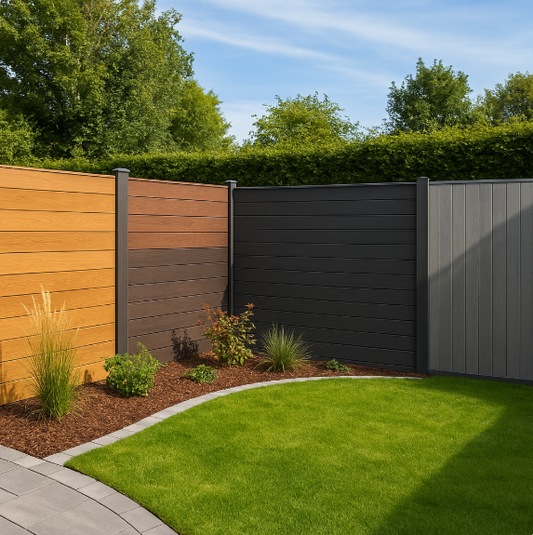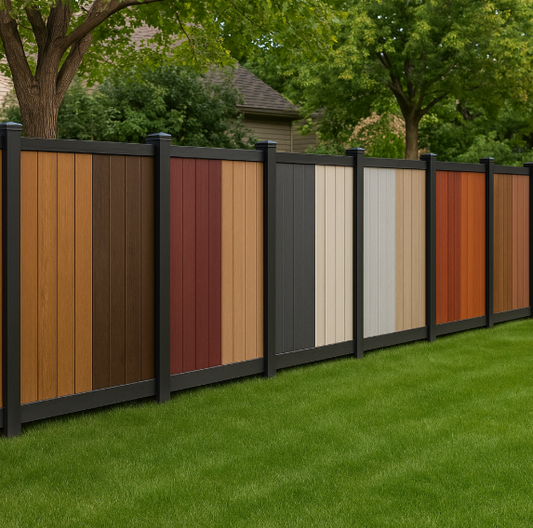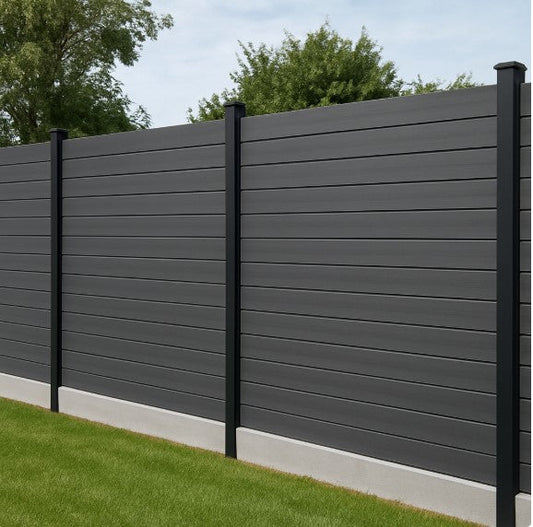Homeowners and developers need to determine the duration of their fence investment before making their purchase. The lifespan of fencing materials depends on their specific composition. Wood fences present an attractive appearance at first but they need extensive maintenance work before they start showing signs of deterioration. The market has adopted composite fencing as its preferred choice for creating durable boundaries that need no maintenance.
This article examines the predicted service duration of composite fencing systems and their enduring properties and their performance against other fencing materials and their value as a permanent property addition.
What Is Composite Fencing?
The production of composite fencing involves uniting recycled wood fibers with advanced plastic polymers. The fusion of these materials produces a dense substance which duplicates wood appearance without developing the typical wood problems that include decay and splitting and warping.
Accel Inc produces composite fence boards through a process that incorporates UV stabilizers and moisture-blocking technologies which enhance their resistance across different environmental conditions.
Average Lifespan of Composite Fencing
A properly installed and maintained composite fence will endure for 25 to 30 years and sometimes longer than that. The extended lifespan of composite fencing makes it one of the longest-lasting fencing options available in the market.
The following table shows the typical lifespan of different fence materials.
|
Fence Type |
Average Lifespan |
|
Composite Fence |
25–30+ years |
|
Wood Fence |
10–15 years (with regular maintenance) |
|
Vinyl Fence |
20–25 years |
|
Chain Link Fence |
15–20 years |
|
Aluminum Fence |
30–40 years (rust-resistant) |
The lifespan of aluminum fencing exceeds composite fencing but it fails to provide the wood appearance and privacy features that composite fencing delivers. The lifespan of wood and chain link fences falls short of composite materials when it comes to durability and longevity.
 |

|
What Makes Composite Fencing So Durable?
The combination of specific elements in composite fencing materials leads to its extended service duration.
1. Weather Resistance
The manufacturing process of composite fencing materials creates products which withstand all types of weather conditions including snow and rain and extreme temperatures and sunlight exposure. The material structure of composite fencing stays firm during weather changes because it does not experience the same swelling or cracking or rotting issues that wood does when exposed to moisture.
The fences from Accel Inc contain UV protection which prevents them from experiencing color degradation and fading throughout their lifespan.
2. Pest and Rot Resistance
The wood material in traditional wood fences becomes susceptible to termite and ant infestations. The composite material structure contains no insect food sources which protects it from pest infestations. The material stays dry so it prevents mold growth and mildew development and rotting.
3. Low Maintenance Needs
A fence that needs no painting or staining or sealing will naturally extend its lifespan. The maintenance needs of composite fences are minimal because they can be cleaned with a hose or soap and water solution without requiring any sanding or chemical treatments or refinishing.
The fence structure remains strong because of its minimal upkeep requirements which also saves money on materials and labor expenses throughout its lifespan.
4. Sturdy Construction
The dense structure of composite fencing panels provides better resistance to impacts and warping than thin metal and hollow vinyl materials. The combination of reinforced panels with strong post systems leads to better stability and longer service life of the fence.
5. No Splintering or Cracking
The material structure of composite fencing maintains its original finish and structural stability after multiple decades of weather exposure. The material structure of composite fencing remains intact because it does not experience the same wood-related problems that occur with aging wood fences.
Does Composite Fencing Require Maintenance to Last?
The maintenance needs for composite fencing are low because it needs infrequent maintenance. The following steps will help you get the most out of your composite fence. Use a hose to spray water on your fence for regular cleaning.
The fence material will suffer damage when heavy machinery and tools interact with it. The lifespan of a composite fence depends on correct installation methods. The manufacturer provides installation guidelines which you should follow or hire a professional contractor to perform the work.
Does Composite Fencing Fade Over Time?
Accel Inc provides composite fencing with UV inhibitors which protect against color degradation. The first few months of exposure to weather conditions will cause minimal color deterioration but the material will maintain its color stability for extended periods.
The selection of a reliable supplier who provides warranty-backed color performance becomes essential because low-quality composites and unbranded products tend to experience major color degradation.
How Does Composite Fencing Handle Moisture?
Wood fences face their main threat from moisture because it leads to rotting and swelling and warping and mold development. The built-in moisture resistance of composite fencing makes it suitable for:
- Coastal homes
- Humid regions
- Pool enclosures
- Rain-heavy climates
Composite fences maintain their strength and appearance while staying clean after multiple years of exposure to wet environments.
 |

|
Warranty Coverage: A Sign of Long-Term Confidence
The expected lifespan of a fence can be determined by checking its warranty duration. Reputable composite fencing manufacturers provide warranties that span from 15 years to 30 years. Accel Inc provides complete manufacturer warranties for our composite fences which guarantee customer satisfaction with their purchases.
The warranty coverage includes:
- The fence structure remains intact.
- The fence material shows no signs of splitting or cracking.
- The fence material maintains its original color without excessive fading.
-
The fence stays protected from termite infestations and insect damage.
Review your warranty documentation to determine which components receive protection and what conditions need to be fulfilled for warranty coverage.
What Can Shorten the Life of Composite Fencing?
The durability of composite fencing remains high but several preventable elements can shorten its operational period. The fence will experience structural deterioration when installation errors result in posts that do not align properly or when the anchoring system fails to function correctly.
The fence panels will develop cracks when users collide with them using mowers and tools and cars. The lifespan of composite materials decreases when manufacturers use low-cost materials that lack UV protection and density and poor manufacturing standards.
The expected 25–30 years of service for users will be achieved through proper installation of high-grade composite fencing materials.
Final Verdict: Is Composite Fencing Worth It?
Yes. The following features make composite fencing your top choice when you need a fence that:
- Long-lasting performance
- Little to no maintenance
- Modern, customizable design
- Eco-friendly materials
- Weather and pest resistance
… then composite fencing is your best option.
The fence provides superior long-term value because it needs infrequent maintenance and shows exceptional durability. The combination of natural wood appearance and advanced aging protection makes composite fencing maintain its beauty from the first day to the last thirty years of its service life.
Choose Accel Inc for Long-Lasting Composite Fencing
Accel Inc provides top-quality composite fencing solutions which deliver exceptional performance and enduring durability. Our fences feature: The installation process becomes simpler with our product design Our products come with extended warranties that lead the industry. Our composite fencing products exist in multiple color options and different surface finishes. Our products use recycled materials to create eco-friendly solutions. Our composite fences provide both durability and attractive appearance and complete security for your backyard and commercial areas and garden boundaries.
Accel Inc provides immediate access to fencing experts who will assist with your durable fence installation and maintenance-free solution.

